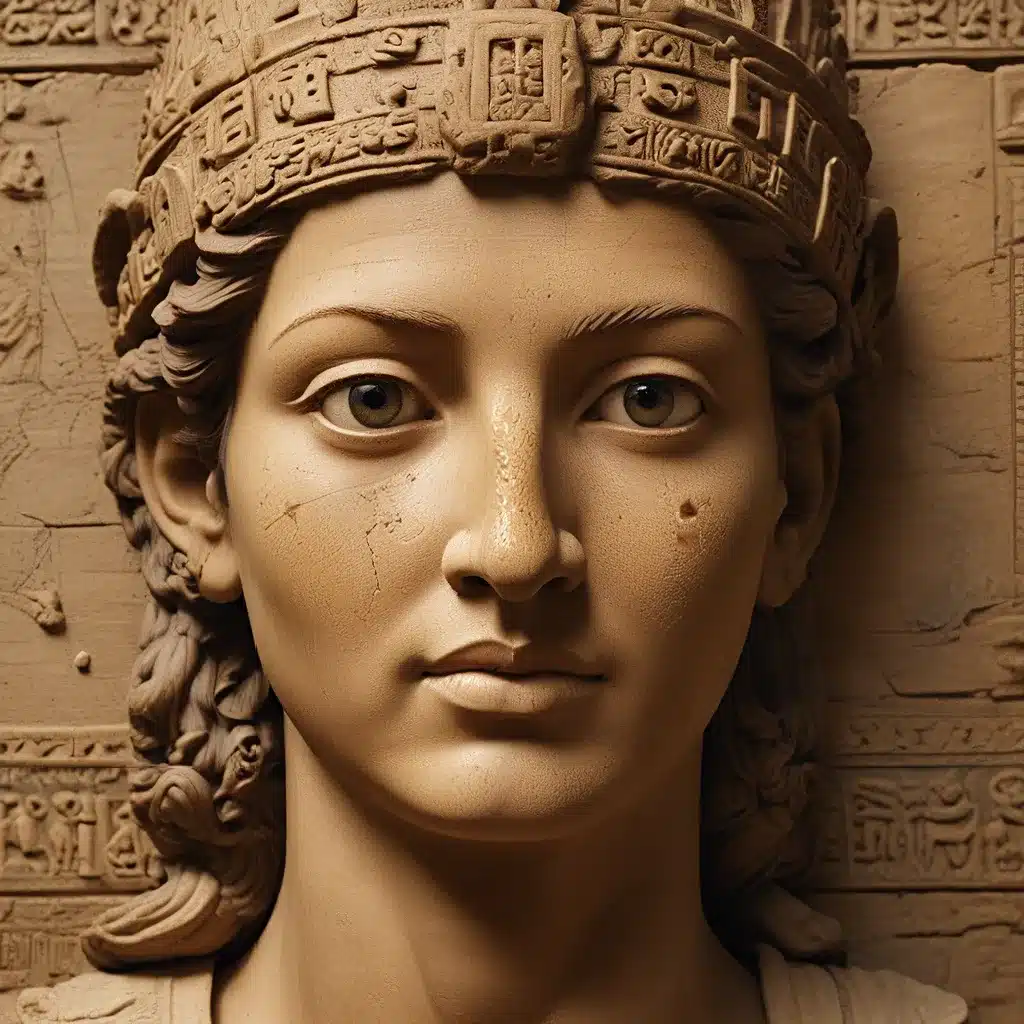
Across the vast expanse of our planet, the sands of time have buried countless stories of civilizations long since passed. Yet, through the tireless efforts of archaeologists and historians, we are constantly unearthing new insights into the forgotten histories of these ancient empires. From the Byzantine Jewish communities of the Middle East to the Roman whalers of the Mediterranean, the past continues to reveal its secrets, challenging our understanding of the world that came before.
Rediscovering the Vibrant Jewish Life of the Byzantine Era
One such forgotten chapter in history is the story of the Greek Bible and its enduring presence within Jewish communities long after the rise of Christianity. New research from the University of Cambridge has uncovered a remarkable discovery, shedding light on the rich and diverse cultural landscape of the Byzantine era.
The study led by Professor Nicholas de Lange has revealed that contrary to popular belief, Jews continued to use Greek translations of the Bible in their synagogues for centuries, well into the Middle Ages. This remarkable finding challenges the long-held assumption that the Jews had abandoned the Greek Bible in favor of the original Hebrew.
The key to this discovery lies in the Cairo Genizah, a collection of manuscripts discovered in an old synagogue in Egypt and brought to Cambridge University Library at the end of the 19th century. These fragile fragments, some no more than mere scraps, have provided a rare glimpse into the lives and practices of Byzantine Jewish communities.
Professor de Lange’s analysis of the Genizah manuscripts has uncovered a diverse array of Greek translations of the Hebrew Bible, including a version created by a convert to Judaism named Akylas in the 2nd century CE. Remarkably, these fragments date back over a millennium after the original translation into Greek, demonstrating the enduring presence of the Greek Bible in Greek-speaking synagogues throughout the Byzantine Empire and beyond.
As Professor de Lange explains, “This is a very exciting discovery for me because it confirms a hunch I had when studying Genizah fragments 30 years ago. It became clear that a variety of Greek translations were in use among Jews in the Middle Ages.”
This discovery not only provides a rare glimpse into Byzantine Jewish life and culture but also illustrates the remarkable cross-fertilization between Jewish and Christian biblical scholars during this period. The online resource created by the research team at Cambridge University and King’s College London allows for the direct comparison of the Hebrew text, the Septuagint (the Greek translation), and the fragments of Akylas and other Jewish translations.
Uncovering the Forgotten Histories of Whaling in the Ancient World
While the Jewish communities of the Byzantine era have long been overshadowed by the rise of Christianity, another forgotten history has emerged from the depths of the Mediterranean Sea. Recent archaeological discoveries have shed light on the surprising role of ancient Rome in the global history of whaling.
Researchers have identified the remains of right whales and grey whales in Roman ruins, suggesting that these majestic creatures were once a part of the bustling fish-processing industry that thrived along the Strait of Gibraltar. This discovery challenges the long-held belief that the Basque people were the first to engage in commercial whaling, with evidence now pointing to the Romans as potential pioneers in this field.
The presence of whale bones at sites like Baelo Claudia, an ancient Roman town in southern Spain, has provided genetic fingerprinting evidence of the right and grey whales that once roamed the Mediterranean. These findings suggest that the Romans may have had access to these larger whale species, which would have been easier to hunt than the faster-moving sperm or fin whales commonly found in the region.
Dr. Camilla Speller, one of the researchers involved in the study, notes that this discovery raises an intriguing question: “whether the Romans were actually starting to do this before or whether the Basques were the first industrial whalers.” The implications of this finding are significant, as it challenges our understanding of the history of whaling and the exploitation of marine resources in the ancient world.
Moreover, the disappearance of the North Atlantic right whale and the grey whale from the Mediterranean Sea is a sobering reminder of the fragility of these ancient ecosystems. As Dr. Ana Rodrigues of the French National Centre for Scientific Research observes, “It seems incredible that we could have lost and then forgotten two large whale species in a region as well-studied as the Mediterranean. Makes one wonder what else have we forgotten.”
Uncovering the Mysteries of Long-Lost Civilizations
The stories of the Byzantine Jews and the Roman whalers are just a few examples of the countless forgotten histories that continue to capture the imagination of scholars and the public alike. Across the globe, archaeologists and historians are constantly unearthing new insights into the lives and cultures of ancient civilizations, shedding light on the rich tapestry of human history.
From the lost city of Atlantis to the enigmatic Nazca lines of Peru, the mysteries of the past continue to captivate our collective curiosity. With each new discovery, we are forced to challenge our preconceptions and rethink our understanding of the world that came before.
The website you are reading, The Lost Kingdoms, is dedicated to exploring these forgotten histories, bringing you the latest news and insights from the world of archaeology and ancient history. Whether you are a seasoned scholar or simply curious about the past, this site offers a wealth of information and engaging content to satisfy your thirst for knowledge.
As we continue to unravel the secrets of the ancient world, one thing becomes increasingly clear: there is always more to discover, more to learn, and more to understand about the rich tapestry of human civilization. The journey of uncovering the forgotten histories of ancient empires is an ongoing quest, one that promises to reveal even more wonders and surprises in the years to come.


